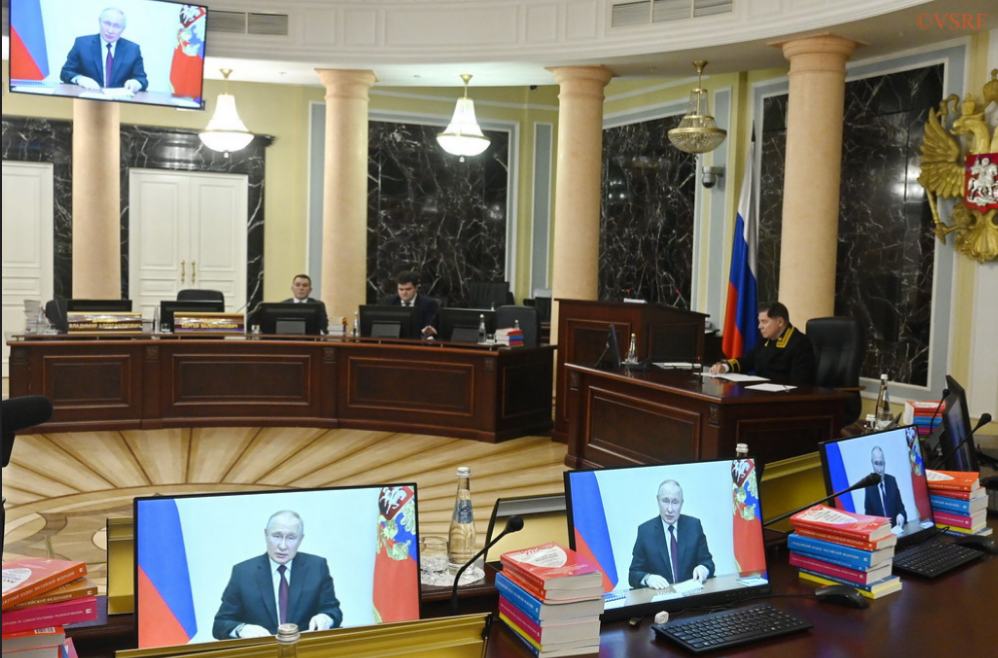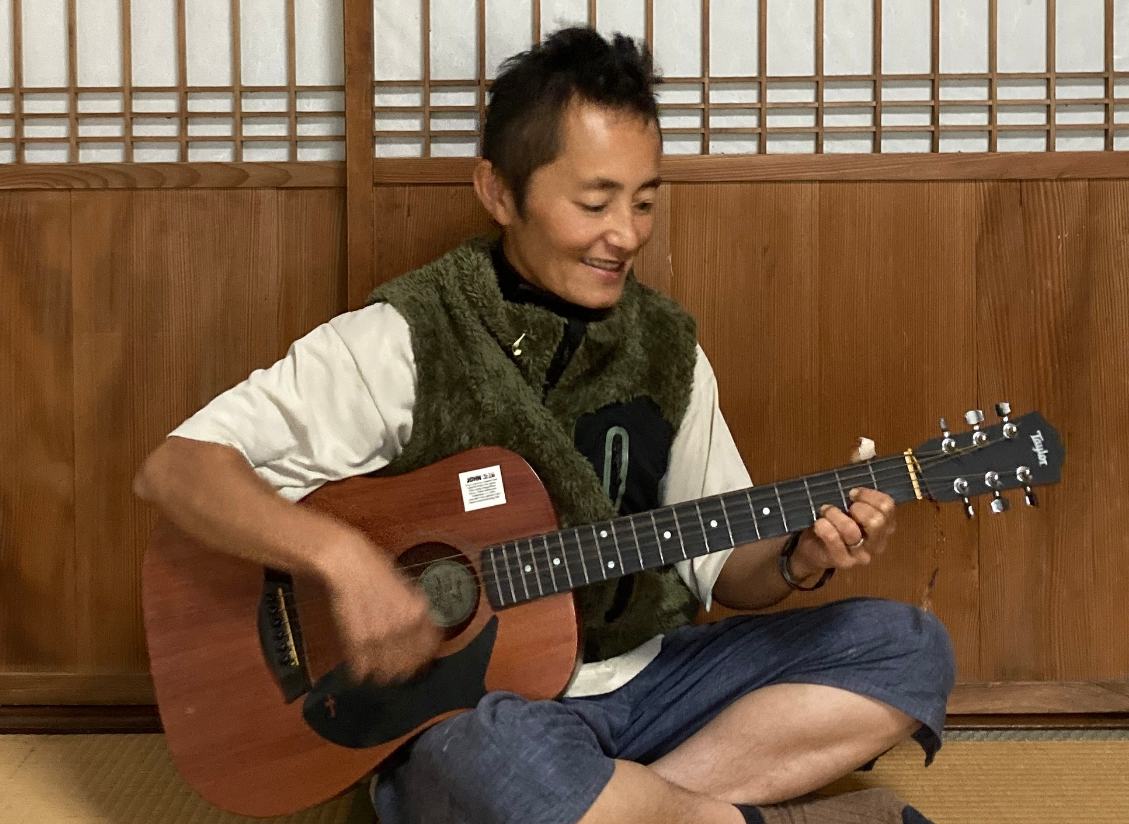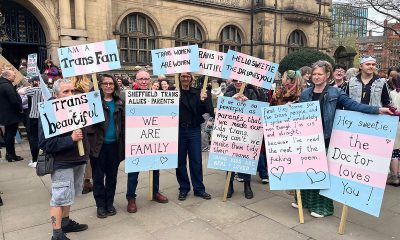World
Out in the World: LGBTQ news from Europe and Asia
Russia investigating Duolingo for allegedly spreading ‘LGBTQ propaganda’

RUSSIA

The Russian Federal Service for Supervision of Communications, Information Technology and Mass Media agency, abbreviated as Roskomnadzor, has launched an investigation into the language learning app Duolingo for allegedly spreading “LGBTQ propaganda.”
The popular learning app teaches more than 40 languages to more than 60 million users worldwide.
Russian media news outlet Novaya Gazeta reported that a complaint, filed by a group Radetel, based in Novosibirsk in central Russia, and claims on its social media and website that it is on a mission to protect “public morality, culture and traditional values,” accused the learning app of violations of Article 5 the Russian “on the protection of children from information harmful to their health and development” law which specifies the promotion of “non-traditional sexual relations as detrimental to children’s health and development.”
Russian state media outlet TASS reported that Roskomnadzor confirmed that the agancy would be investigating Duolingo for potential “distribution of information that promotes LGBTQ.”
For its part as defined on its website, Duolingo states: “Duolingo believes deeply in diversity and representation. This made it a no-brainer to include all types of characters of different ages, ethnic backgrounds and sexual orientations.”
The app’s statement goes on reading:
“The second reason is our learners. Something really unique about Duolingo is the extremely vast and diverse audience for our content: Language learners of all ages, from all around the world. Yes, that’s a lot of people. And with such a broad base of learners, we have a responsibility to reflect and relate to the experiences of all kinds of people, LGBTQIA+ folks included.
Of course, characters are also much more compelling when they’re relatable, not only because of their dreams and their flaws but also who they love. So when we create Stories, which are written first in English and then adapted to other languages, we aim to make our content entertaining and relatable for learners worldwide. This is a fun and oftentimes difficult challenge. We’re proud to have our characters, especially our LGBTQ characters, help us do that.”
Radetel, which referred to members of the LGBTQ community as “sodomites” in its complaint to Roskomnadzor, said that “outraged” parents had brought Duolingo’s LGBTQ “propaganda” to its attention, adding that they had said they didn’t know how to explain the sentences to their primary school-age children “without traumatizing them,” Novaya Gazeta reported.

(Human Rights Watch) – Russian courts have issued the first known extremism convictions arising from the 2023 Supreme Court ruling designating the “international LGBT movement” as extremist, Human Rights Watch said on Feb. 14. The Supreme Court ruling, which was handed down on Nov. 30 but became public only in mid-January 2024, indicates that many more convictions may follow.
The Supreme Court ruling also declared the rainbow flag a forbidden symbol of the “LGBT movement.” Displaying the flag is the basis for administrative penalties in at least three cases that courts have tried in recent weeks. In late January, a court in Nizhny Novgorod sentenced a woman to five days detention for wearing rainbow-colored earrings after an individual accosted her and her friend in a cafe. Also in late January, a judge in Volgograd region handed down a fine over a rainbow flag published on a social media page. In early February, a court in Saratov fined a woman for posting a rainbow flag on social media.
“The Supreme Court decision opened the floodgates to allow arbitrary prosecution of lesbian, gay, bisexual, transgender and queer people, along with anyone who defends their rights or expresses solidarity with them,” said Tanya Lokshina, associate Europe and Central Asia director at Human Rights Watch. “For years, Russian authorities tried to erase LGBT visibility, and now they have criminalized it.”
At least three groups supporting LGBT rights have shut down their operations for fear of prosecution. Other consequences of the ruling have included a series of police raids of gay clubs, incidents of self-censorship, and an uptick in requests for legal advice from remaining LGBT support groups, which have now turned to working clandestinely.
The Supreme Court ruling and prosecutions flowing from it are discriminatory, violate a wide range of rights, and should be overturned, Human Rights Watch said.
Under Russian criminal law, a person found guilty of displaying extremist group symbols faces up to 15 days in detention for the first offense and up to four years in prison for a repeat offense. Participating in or financing an extremist organization is punishable by up to 12 years in prison. The authorities may include individuals suspected of involvement with an extremist organization in the countrywide “list of extremists” and freeze their bank accounts. People deemed to be involved with an extremist organization are barred from running for public office. Draft legislation further expanding the notion of “justifying extremism” has passed first reading in Russia’s Parliament.
The Supreme Court’s perverse decision to accept the “international public LGBT movement” as a fictional defendant in this case was compounded by their denial of all requests by LGBT activists to participate, followed by the claim that “the defendant party failed to appear.” The court also refused to consider numerous appeals lodged by LGBT rights activists, saying that only the parties to the case had the right to appeal the ruling. By using the twisted legal fiction that there was an identifiable defendant called the “international LGBT movement” to contest the case, the Supreme Court denied all Russian LGBT persons and their allies directly impacted by the decision any due process rights, including by refusing to disclose the text of the judgment or reasons for the decision.
The text of the ruling, which was later seen by a regional media outlet in the course of a court case and published in January, states that the rainbow flag is the movement’s symbol. Because Russian law enforcement practice treats even old social media posts that are still available online as grounds for prosecution, thousands of people, and most likely more,who have posted the rainbow flag over the years face the risk of prosecution. The ruling states that 281 “active participants” in the movement have been personally identified, but it does not clarify how or by whom.
The Supreme Court ruling is the most recent example of authorities’ long record of misusing Russia’s broad and vague anti-extremism legislation to prosecute peaceful critics and members of certain religious groups, Human Rights Watch said. Hundreds of people have been wrongfully prosecuted under criminal extremism legislation, according to the SOVA Research Center and the list of political prisoners released by prominent human rights group Memorial.
Since a court banned three organizations affiliated with political opposition leader Aleksey Navalny as “extremist” in 2021, Navalny and five of his supporters have been sentenced to prison on a range of extremism charges for legitimate activism, while dozens more have received fines and short-term jail sentences. Six members of Vesna, a democratic youth movement, have been in pretrial custody since June 2023 on various spurious charges, including extremism. Hundreds of Jehovah’s Witnesses have been jailed since the organization was banned as “extremist” in 2017.
Editor’s Note: On Feb. 16, it was announced that opposition leader Aleksey Navalny had died in a Russian Penal Camp.
The Russian Federal Prison Service said early Feb. 16 that Navalny felt unwell after a walk and lost consciousness. An ambulance arrived, and its crew tried to rehabilitate him but was unsuccessful, it added.
Navalny was serving a 19-year sentence on charges of extremism, and in December was moved from a different prison to the highest-security level facility in the country near the Arctic Circle. The “special regime” penal colony prison in the town of Kharp, which is about 1,200 miles northeast of Moscow, is in a remote area known for its severe winters.
Navalny has been imprisoned since January 2021, when he returned to Russia after recovering from a poisoning that he blamed on Putin, who has denied trying to kill Navalny with a nerve agent.
The Supreme Court ruling has drawn strong criticism internationally. The U.N. High Commissioner for Human Rights deplored the ruling, stating that “the law must never be used to perpetuate inequality and discrimination,” and saying that Russia should repeal laws that discriminate against LGBTQ people.
Five U.N. human rights experts reminded Russian authorities that under international human rights law, peaceful advocacy and expression of sexual orientation and gender identity can neither be considered “extremist” nor legitimate grounds for administrative and criminal prosecution.
“The ruling has no basis in reality; it is filled with conspiracy theories, false and unsubstantiated claims, and hateful stereotypes; and it seeks to impose ‘traditional values’ ideology through repressive criminal law,” Lokshina said. “The only way to remedy this travesty of justice is to vacate the recent convictions and reverse the absurd ‘extremism’ designation.”
POLAND

BY ROB SALERNO — A newscaster on Poland’s public television service delivered an apology for his and the network’s previous vicious and dehumanizing coverage of LGBTQ people and issues, after Poland’s new government replaced the far-right editorial board of the broadcaster.
News host Wojciech Szelag acknowledged that TVP had frequently demonized LGBTQ people and delivered his apology ahead of a segment in which he interviewed two queer activists.
“For many years in Poland, shameful words have been directed at numerous individuals simply because they chose to determine for themselves who they are and whom they love,” Szelag said. “LGBT+ people are not an ideology, but people, specific names, faces, relatives, and friends. All these people should hear the word sorry from this place today. This is where I apologize.”
Poland’s new center-left government took office in December, ending eight years of government by the extremely right-wing Law and Justice Party that strongly opposed LGBTQ rights. The new government under Prime Minister Donald Tusk has moved to reshape institutions that the previous government had filled with party cronies, which caused controversy when the government fired the TVP management. TVP had long been accused of having become a mouthpiece for the Law and Justice Party.
Some liberals accused the government of repeating the mistakes of the right, but the government insists it is simply trying to restore editorial balance.
Bart Staszewski, one of the LGBTQ activists that was interviewed on the program said the apology was evidence that Poland is moving in the right direction.
“Today, first time in Polish TV, after eight years of right-wing government, the LGBT+ activists appeared in live broadcast. I was seating there and heard journalist shaking voice. He made an apology after years of portraying LGBT-people a threat to Polish nation in the same studio. I was moved. Apology an important part of reconciliation. This is Poland I want to fight for… Thank you,” Staszewski wrote on X.
Straszewski later posted an image of an old broadcast in which Szelag said “LGBT ideology destroys family,” as evidence of how far the network had come.
Tusk has made several promises to the LGBTQ community as part of his election platform and coalition government agreement. He’s promised to institute a hate speech law, legalize same-sex civil unions and legalize abortion — all issues that were strongly rejected by the previous government.
It’s not clear at present when or if these proposals will become law, as the Law and Justice Party still holds the presidency with its veto power, at least until elections expected next May.
UNITED KINGDOM
19-year-old Summer Betts-Ramsey appeared before a magistrate at Willesden Magistrates Court on Feb. 13, charged with attempted murder and possession of an deadly weapon in public after she allegedly stabbed an 18-year-old transgender woman at who was with friends headed to the Harrow Leisure Center for a roller-skating party.
Metropolitan Police Detective Inspector Nicola Hannant, who is leading the investigation, said:
“This was a shocking and violent attack and we continue to support the victim and her family as she recovers from her injuries. At this stage, we are treating this as a transphobic hate crime and we know this will cause significant concern.
Since the incident occurred, we have been working tirelessly to identify those responsible and are making good progress with our investigation.
We have already arrested four people however we continue to appeal for anyone who may have been in the area or who believes they have further information to come forward and speak to us. We have increased police patrols and would encourage people to approach these officers with any information or concerns.”
According to Hannant, the victim was subjected to transphobic slurs before being stabbed 14 times. She was rushed to hospital for treatment and subsequently discharged.
The attack comes just over a year after a pair of 15-year-olds stabbed trans teen Brianna Ghey, 16, to death in a park near her home in Birchwood. The teens, Scarlett Jenkinson and Eddie Ratcliffe, now 16, were both handed life sentences earlier this month.
The Metropolitan Police have dedicated LGBTQ points of contact across London who can offer advice and support. Their contact details can be found here: (Link)
IRAQ

An unnamed security official with the Al-Qadisiyah Governorate, told Iraqi media outlet Shafaq News that a trans blogger was killed after being repeatedly stabbed in the center of the city of Al Diwaniyah, the capital city of the governorate that is located roughly 100 miles southeast of the country’s capital city of Baghdad.
The police official told Shafaq News: “Simsim, 28-years-old was killed by unknown assailants with several sharp knife stabs near the mural roundabout in the center of Diwaniyah city.” The official went on to note “the killers escaped to an unidentified location and the forensic team took the body to complete the legal formalities.”
Iraq has witnessed a series of assassinations of trans people, Shafaq News noted. One of the most prominent cases was the murder of NOOR BM, a popular TikTok figure who was shot dead by an unknown gunman in Baghdad in September 2023.
Last August, Iraq’s Communications and Media Commission has ordered media outlets and social media companies that operate in the country to refer to homosexuality as “sexual deviance.”
Homosexuality is legal in Iraq, but violence and discrimination based on sexual orientation and gender identity remains commonplace in the country.
JAPAN

In a landmark ruling last week, the Okayama Family Court’s Tsuyama Branch recognized a trans man’s petition to legally change his gender without having first undergone sterilization.
Japanese media outlet The Mainichi reported that the plaintiff, 50-year-old Tacaquito Usui, a farmer from a rural area of the prefecture of Okayama, legally change his gender without having first undergoing sterilization, after the Supreme Court’s presiding judge, Yukihiko Imasaki, ruled the requirement unconstitutional this past October.
But while the Supreme Court did issue a ruling on sterilization surgery, the high court is re-evaluating the requirement that a person’s genitals must conform in appearance with those of the gender they identify with.
The Okayama court judged that the man fulfilled the appearance criterion, the same conclusion it reached in his first petition, due to factors including his having undergone hormone therapy.
The Mainichi reported Usui, operates a farm in the village of Shinjo, where he lives with his 46-year-old partner and her son, aged 13. With Usui’s gender now legally recognized, the pair will be able to fulfill their long-held wish to marry.
“I want to thank my family. I feel a new life is beginning,” Usui said in a press conference after the decision.
Usui was assigned as female at birth and has said that he felt uncomfortable being treated as such from a young age. After becoming an adult, he was diagnosed with gender identity disorder. Usui told reporters the latest outcome “left me feeling society has changed” and that he is “moved by the progress that has been made.”
Additional reporting by Rob Salerno, the BBC, PinkNewsUK, Human Rights Watch, Novaya Gazeta, Agence France-Presse, The Mainichi, Shafaq News and Euronews 24.
Kenya
Kenya Red Cross-owned hotel to host anti-LGBTQ conference
Speakers from US, European countries to participate in May 12-17 gathering

Plans to host a family values meeting next month in a 5-star hotel in Nairobi that the Kenya Red Cross Society co-owns have sparked an uproar among local queer rights groups.
The groups accuse the Kenya Red Cross of violating its Global Fund commitment of protecting key populations by allowing its Boma Hotel to host an “anti-gender and anti-LGBTQ” conference.
Influential guest speakers from the U.S., the Netherlands, Spain, and Poland will preside over the Pan-African Conference on Family Values that will take place from May 12-17. The Kenyan advocacy groups say these speakers’ organizations are globally recognized for undermining LGBTQ rights.
“As the principal recipient of Global Fund in Kenya, hosting this event contradicts (the) Red Cross’s humanitarian mission and threatens the safety and dignity of people living with HIV, women and LGBTQ+ individuals, the communities that Kenya Red Cross Society has long committed to supporting,” the queer rights groups state.
The LGBTQ groups that have criticized the Kenya Red Cross include Upinde Advocates for Inclusion, the Initiative for Equality and Non-Discrimination, and Gay and Lesbian Coalition of Kenya. They have also launched an online signature collection drive to compel the Kenya Red Cross to withdraw the hotel from hosting the “Promoting and Protecting Family Values in Challenging Times”-themed conference.
“The event’s so-called ‘family values’ narrative is a smokescreen for policies that push hateful legislation and promote death, discrimination, femicide, gender-based violence, and restrict fundamental freedoms across Africa,” the groups said.
The pro-life Western organizations that are scheduled to participate in the conference include Family Watch International from the U.S., CitizenGo from Spain, the Ordo Luris Institute from Poland, Christian Council International from the Netherlands, the New York-based Center for Family and Human Rights (C-FAM), and the Foundation for American Cultural Heritage. Their local counterparts include the National Council of Churches of Kenya, the Kenya Christian Professionals Forum, the Africa Christian Professionals Forum, and the Evangelical Alliance of Kenya.
C-FAM President Austin Ruse; Family Research Council Vice President for Policy and Government Affairs Travis Wever; Global Life Campaign Executive Director Thomas W. Jacobson; and the Rev. Ricky Chelette, executive director of Living Hope Ministries, Inc., and president of the Institute of Biblical Sexuality are among the U.S. guest speakers. Other participants include Henk Jan van Schthorst, president of Christian Council International’s board of directors, Ordo Luris Institute President Jerzy Kwasniewskie and his colleague, Rafal Dorosinski, director of the group’s Legal Analysis Center.
The Kenyan groups through their online petition — “Tell Red Cross Kenya Not to Give Hate a Platform” — has so far raised more than 1,000 of the 10,000 signatures they hope to collect. The petition is addressed to Red Cross Kenya Secretary-General Ahmed Idris and his predecessor, Abbas Gullet, who is the hotel’s director.
“We call on you to immediately cancel this booking and publicly reaffirm Red Cross’ commitment to human rights, health and inclusivity,” the petition reads. “Failure to act will raise concerns about whether (the) Red Cross can still be trusted by the community to lead with empathy and fight for their rights.”
The Kenya Red Cross, however, maintains the Boma Hotel is a separate entity, even though public records indicate it is one of the facility’s shareholders.
The LGBTQ groups note the hotel should be a safe space that promotes inclusion, not platforms that enable “harmful gathering” for hate and exclusion by “dangerous groups.”
“By providing a venue for this event, Red Cross directly enables a platform for hate and discrimination — a stark contradiction to the values of inclusivity, humanity, and nondiscrimination that the organization claims to uphold,” they said.
The organizations further warn that proceeding to host the conference threatens the relationship between the Red Cross and the marginalized communities who have long depended on the humanitarian organization for support and protection. CitizenGo has nonetheless criticized the LGBTQ groups, which it describes as “radical activist groups” for “trying to silence a pro-family event” and asked the Kenya Red Cross and the Boma Hotel not to back down.
“These groups are calling the event ‘hateful’ because it affirms the natural family — marriage between a man and a woman — and the dignity of every human life, including the unborn,” Ann Kioko, the group’s campaign director for Africa and the U.N., said.
Through an online counter signature collection drive, Kioko holds CitizenGo and other groups won’t be intimidated, silenced or apologize to the queer rights groups for defending “our families, our faith and our future”.
“The real goal of these foreign-funded activist groups is to impose LGBTQ and gender ideologies on Africa — ideologies that have led elsewhere to the confusion of children, the breakdown of family structures and the rise of sexual libertinism that results in abortion, STIs and lifelong emotional and psychological trauma,” Kioko stated.
India
Opposition from religious groups prompts Indian Pride group to cancel annual parade
Event was to have taken place in Amritsar on April 27

Pride Amritsar, a student-led organization in the Indian state of Punjab, earlier this month announced the cancellation of its Pride parade that was scheduled to take place on April 27, citing opposition from certain religious groups.
The event, planned for the Rose Garden in Amritsar, a city revered as a spiritual center of Sikhism, had faced mounting resistance from Sikh religious organizations, including the Nihang Singh faction and the Akal Takht, the faith’s highest temporal authority. These groups labeled the parade as “unnatural” and urged local authorities to deny permission, citing its potential to disrupt the city’s religious sanctity.
In an Instagram post on April 6, Pride Amritsar organizers Ridham Chadha and Ramit Seth elaborated on its mission and the reasons for the cancellation.
“Since 2019, we have organized peaceful parades and celebrations in Amritsar to connect and uplift the LGBTQIA+ community, with a particular focus on transgender individuals and their rights,” their statement read.
Chadha and Seth highlighted Pride Amritsar efforts in providing guidance, counseling, and job opportunities, which have been met with positive responses. However, due to opposition this year, Pride Amritsar announced the cancellation of the 2025 parade.
“We have no intention of harming the sentiments of any religious or political groups,” the statement read. “The safety of our members is our top priority, and we will take all necessary measures to ensure their protection.”
Chadha and Seth spoke with the Washington Blade about their decision to cancel the parade.
They explained that resistance came from both religious and political groups who labeled the parade and its values as anti-Sikh and contrary to Punjabi and Indian cultural norms. Critics specifically objected to the event’s location in Amritsar, a city regarded as a sacred center of Sikhism, arguing that the parade would disrupt its spiritual purity.
Chadha and Seth stressed Pride Amritsar lacks political, financial, or legal support. Composed of students and young professionals, the group organizes the parade biennially, dedicating personal time to advocate for the LGBTQ community.
“We do it independently, crowdfund the parade and cover the rest with our pockets,” said Seth and Chadha.
When asked by the Blade why Pride Amritsar did not approach the High Court or local authorities to protect the parade, despite the Supreme Court’s 2018 ruling that decriminalized consensual same-sex sexual relations, Chadha and Seth cited significant barriers.
“Pursuing legal action in India requires substantial resources, both financial and temporal,” they explained.
Chadha and Seth also noted that such action could lead to public shaming and unwanted publicity for participants, potentially harming their careers in Amritsar. They therefore chose not to pursue legal recourse.
Chadha and Seth said Pride Amritsar does not have any plans to hold alternative events.
“We are still exploring options, but we are likely not holding any events this year,” they said, citing significant harassment that organizers faced and the need for time to plan how to best serve the local LGBTQ community moving forward.
“Our evaluation of what the biggest challenge is has changed after this year,” said Chadha and Seth to the Washington Blade. “The biggest challenge, by far, seems to be education. We need to educate the community about what the community is, does, and why it exists. Why we do parades. Why we dance. Why calling someone ‘chakka’ is harmful. How we actually fit into religion and fall within the guidelines.”
Chadha and Seth said organizing the parade in Amritsar since 2019 has been an uplifting experience, despite continued opposition.
“The moment you join the parade, chant a slogan, or sing a song, it’s transformative,” they said. “Fear vanishes, and a sense of freedom takes over.”
The cancellation of the 2025 Amritsar Pride Parade has sparked concerns among activists in Punjab, as the Indian Express reported.
The Punjab LGBT Alliance and other groups expressed concern that the decision to cancel the parade may strengthen opposition to future LGBTQ-specific events.
Australia
Australian LGBTQ rights group issues US travel advisory
Equality Australia warns transgender, nonbinary people of ‘serious risks’

An LGBTQ rights group in Australia has issued a travel advisory for transgender and nonbinary people who plan to visit the U.S.
Equality Australia on April 14 posted the advisory to its website that states the U.S. government’s policy on visas and Electronic System for Travel Authorization or ESTA “appears to be” the following:
• To use the term “biological sex”
• To only use the gender marker recorded at a person’s birth, even if this differs from their gender
• That valid foreign passports with an ‘X’ gender marker and a valid visa (if needed) may continue to be admitted, however this is contingent upon satisfying inspection of their admissibility by the U.S. Customs and Border Protection officer at the port of entry
• That any previously issued, valid visa may remain current until its expiration date and the visa holder does not need to apply for a new visa with an amended gender marker until the current visa expires (it is unclear whether this applies to ESTAs)
• That new visas will only be issued under the gender marker recorded for the applicant at birth (it is unclear whether this applies to ESTA applications, although only ‘M’ and ‘F’ gender marker options are available for ESTA applications)
• That if consular officers assessing visa applications become aware an application does not contain the gender marker recorded at the applicant’s birth, they should assess additional evidence (such as previous travel records, although the scope is unclear), and/or conduct interviews and
• That where individuals are not using the gender marker recorded at their birth, consular officers should consider classifying the application as procuring a visa through material misrepresentation or fraud, which results in a lifetime bar from the U.S.
President Donald Trump shortly after he took office on Jan. 20 issued an executive order that bans the State Department from issuing passports with “X” gender markers. Secretary of State Marco Rubio in response to directive ordered State Department personnel to “suspend any application requesting an ‘X’ sex marker and do not take any further action pending additional guidance from the department.” A federal judge in Boston on April 18 issued a temporary injunction against the Trump-Vance administration’s directive.
Equality Australia says its advisory is “relevant if you are traveling to the U.S.” and fall under the following criteria:
• Hold a passport with a gender ‘X’ marker
• Have identity documents with gender markers different to those assigned to you at birth, or where other relevant details (such as your name) have been changed
• Have gender markers in your identity documents that do not match your gender expression
• Have a track record of LGBTIQ+ activism or other political activity.
“Travel to the U.S. carries serious risks that should be considered before planning any travel, particularly if you fall under one of the above categories,” reads the advisory.
Germany, Denmark, Finland, and the Netherlands are among the countries that have issued travel advisories for trans and nonbinary people who plan to visit the U.S.
WorldPride is scheduled to take place in D.C. from May 17-June 8.
InterPride, the organization that coordinates WorldPride events, on March 12 issued its own travel advisory for trans and nonbinary people who want to travel to the U.S. Egale Canada, one of Canada’s largest LGBTQ advocacy organizations, in February announced its members will not attend WorldPride and any other event in the U.S. because of the Trump-Vance administration’s policies.
-

 Federal Government4 days ago
Federal Government4 days agoHHS to retire 988 crisis lifeline for LGBTQ youth
-

 Opinions4 days ago
Opinions4 days agoDavid Hogg’s arrogant, self-indulgent stunt
-

 District of Columbia4 days ago
District of Columbia4 days agoD.C. police seek help in identifying suspect in anti-gay threats case
-

 Virginia4 days ago
Virginia4 days agoGay talk show host wins GOP nom for Va. lieutenant guv











